| | In this edition: Kenyan banks seek Ethiopia launch, EU invests in clean energy, and the power of dig͏ ͏ ͏ ͏ ͏ ͏ |
| |   Gaborone Gaborone |   Antananarivo Antananarivo |   Kinshasa Kinshasa |
 | Africa |  |
| |
|
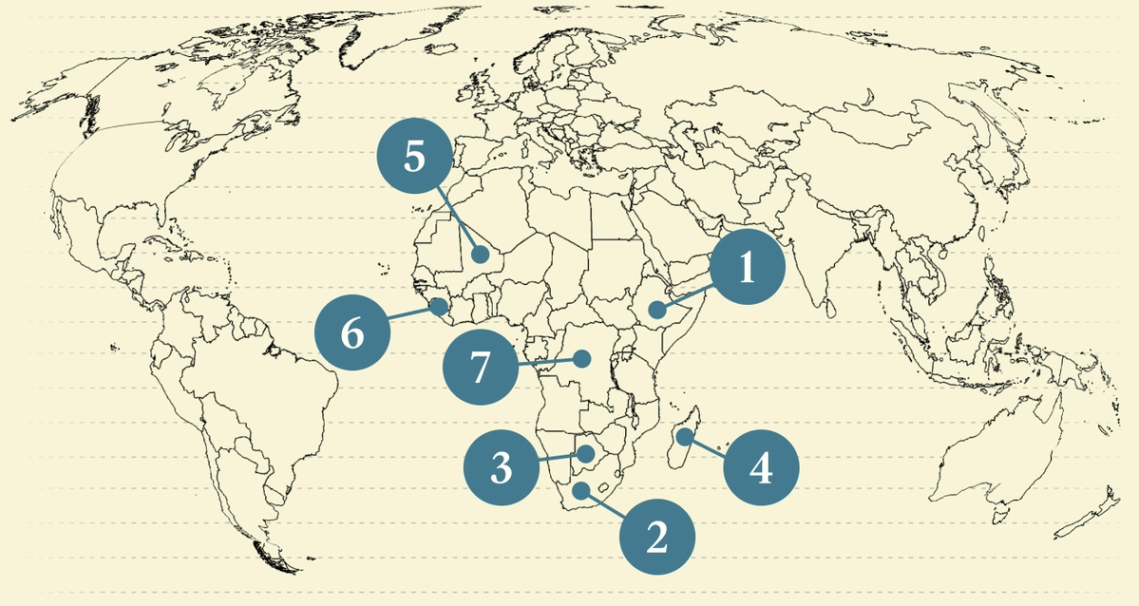 - Kenyan banks eye Ethiopia
- EU’s clean energy investment
- Botswana’s new mining rule
- Madagascar faces coup
- Mali’s new US visa bond
- Gallup’s worry survey
- Digital traceability
 The week ahead, and a new documentary series about African cultural landmarks. |
|
Kenya’s banks look to Ethiopia |
| | 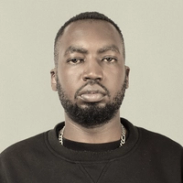 | Martin K.N Siele |
| |
 Thomas Mukoya/File Photo/Reuters Thomas Mukoya/File Photo/ReutersKenya’s two largest banks are accelerating plans to launch in Ethiopia in their bid to capitalize on Addis Ababa’s economic liberalization, even as a new World Bank report highlighted major challenges faced by telecoms giant Safaricom in its expansion in the country. Kenyan banks are betting on rising demand for financial services among young people in Ethiopia, Africa’s second-most populous nation, where Prime Minister Abiy Ahmed has opened up key sectors including finance and telecommunications. In August, Kenya Commercial Bank confirmed plans to acquire a 40% stake in an undisclosed Ethiopian lender. And last month Equity Bank Kenya pushed forward on its plans to enter Ethiopia by holding talks with the Ethiopian Investment Commission. Their moves come as the World Bank’s report, published last week, said that state-owned Ethio Telecom is afforded major advantages by the Ethiopian government at the expense of Kenya’s Safaricom, including regulatory decisions on pricing. The lender said the operating conditions warranted “further investigation by authorities.” |
|
EU pledges €11.5B investment in S.Africa |
 Yves Herman/Reuters Yves Herman/ReutersThe European Union pledged to invest €11.5 billion ($13.3 billion) in South Africa to develop clean energy, transport infrastructure, and health care projects in the continent’s biggest economy. Most of the investment aims to accelerate the country’s shift to “low-carbon, renewable energy” — away from coal-fired power stations that generate around 85% of the country’s electricity — through new power generation capacity, grid upgrades, and energy storage. Pretoria’s efforts to lower carbon emissions have been hobbled in recent years by resistance within state power utility Eskom, which faces potentially radical restructuring as part of the energy transition. Washington’s withdrawal this year from the Just Energy Transition Partnership initiative that aims to help a handful of emerging economies to transition to clean energy also hit South Africa’s clean energy plans. Renewable energy overtook coal as the world’s primary source of electricity in the first half of 2025, according to new data from energy think tank Ember, which also said solar panel imports to Africa were up 60% year-on-year, with South Africa receiving the continent’s highest number of panels. — Alexis Akwagyiram |
|
Botswana’s new mining rule |
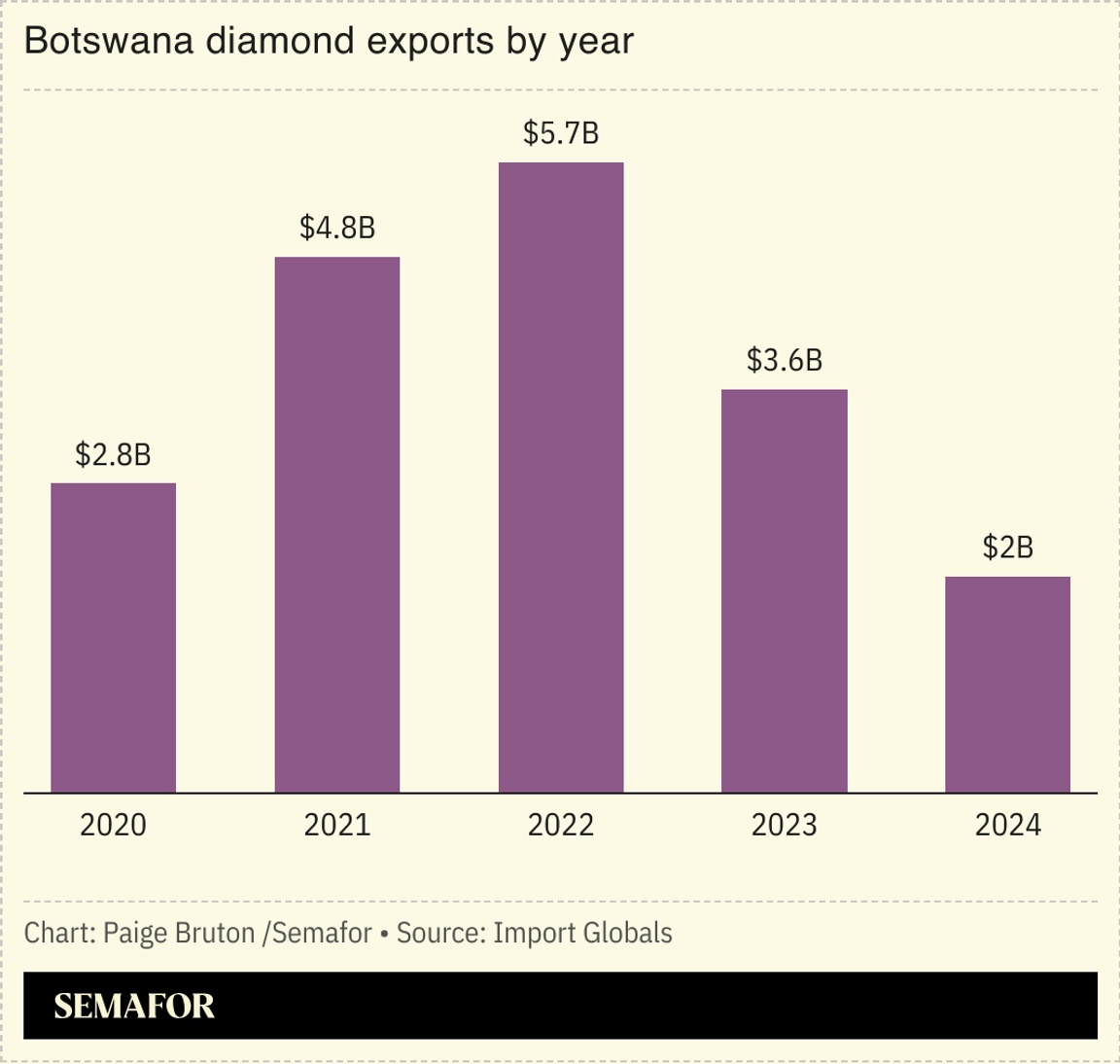 Botswana, the world’s top diamond producer by value, has begun enforcing a new rule requiring mining companies to sell a 24% stake in new concessions to local investors if the government chooses not to buy the stake. The legislation, which was proposed last year, aims to increase local ownership of the country’s mineral wealth, promote local value-adding activities, and ensure mining companies establish environmental rehabilitation funds. The southern African country, which relies on diamond sales for around 80% of foreign exchange earnings, has had a decades-long diamond mining arrangement with De Beers. But Botswana’s economy has been rocked by a downturn in the global diamond market: Sales have been hit by oversupply and poor demand, partly tied to the growing popularity of lab-grown gems. — Alexis |
|
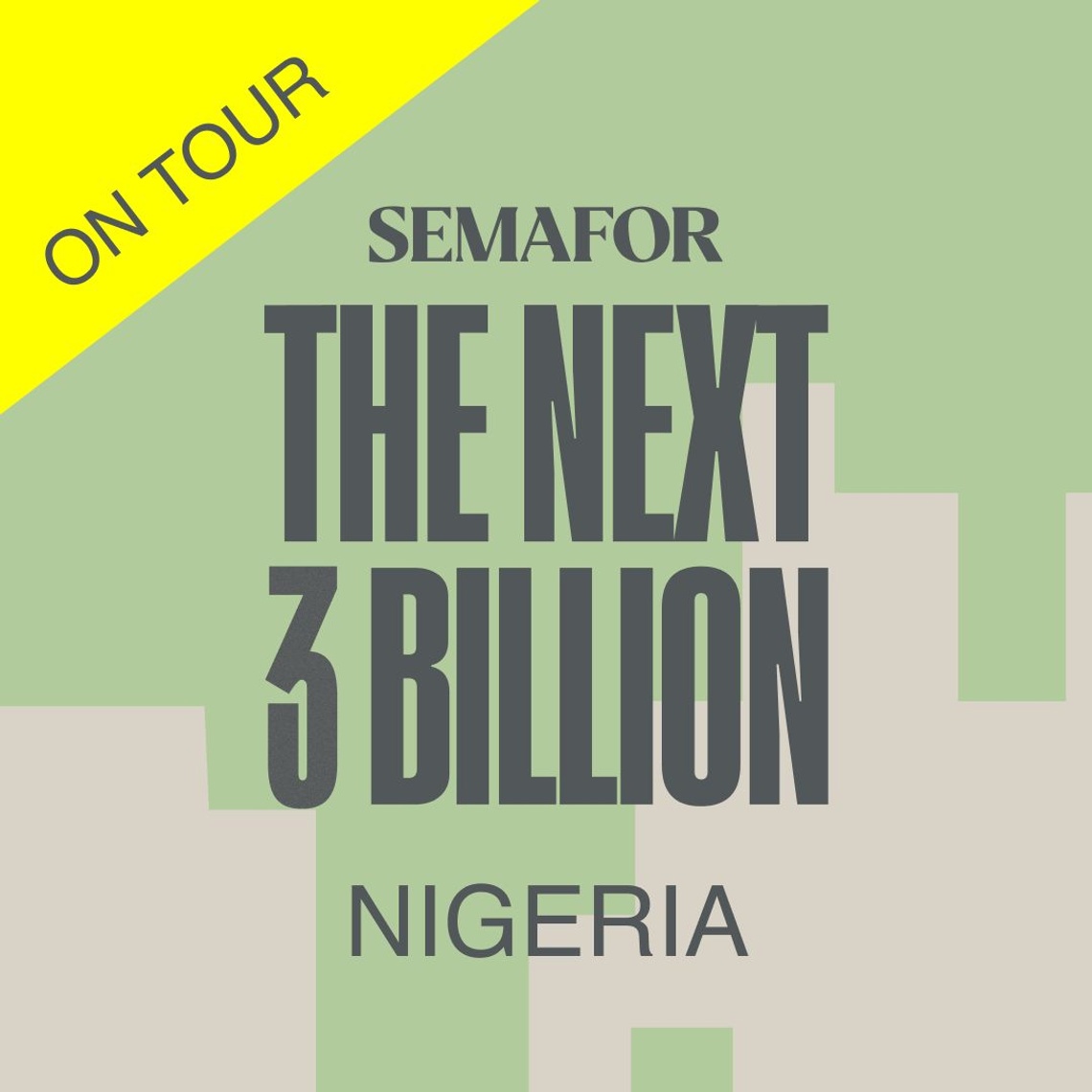 On the first stop of The Next 3 Billion Tour, Semafor will bring the conversation to Abuja, spotlighting Nigeria — one of Africa’s most influential innovation hubs. With its fast-growing economy, vibrant tech sector, and young, connected population, Nigeria is at the heart of the continent’s digital transformation. Join Lasbery Chioma Oludimu, Vice President of Global Operations and Managing Director, Yellow Card; Uche Amaonwu, Country Director for Nigeria, Gates Foundation; Serah Makka, Executive Director for Africa, ONE; and Raliat Sunmonu, Vice President, Middle East and Africa, Accion, as they discuss how Nigeria’s fintech innovation, evolving regulations, and entrepreneurial energy can drive financial inclusion and open new pathways for equitable growth. Oct. 22 | Abuja, Nigeria | Request Invitation |
|
Madagascar leader says coup under way |
 Zo Andrianjafy/Reuters Zo Andrianjafy/ReutersA coup is under way in Madagascar, the country’s presidency said. Madagascar has seen weeks of protests, initially spurred by shortages of water and power, but now encompassing deeper unhappiness over corruption, inflation, and high unemployment. Demonstrators have gathered in the capital Antananarivo, and there are reports of shooting between police and the army. President Andry Rajoelina will address the nation on Monday, his office said. The protests are led by a youth movement which uses symbols — including a pirate flag from popular Japanese manga One Piece, a stand-in for confronting oppression — associated with demonstrations in other countries, including Morocco, Nepal, and Peru. Yet Madagascar has its own history of upheaval: The army has led several coups since the country’s independence from France in 1960, most recently in 2009. This item first appeared in Flagship, Semafor’s daily global affairs newsletter. Subscribe here. → |
|
|
Mali retaliates against US visa fees |
 The amount US nationals visiting Mali will be required to post as a bond for tourist and business visas in a tit-for-tat response to the Trump administration’s imposition on the West African country. Mali has become the latest African nation to be hit by a visa bond since Washington instituted the requirement in August, starting with citizens of Malawi and Zambia. The Gambia, São Tomé and Príncipe, Tanzania, and Mauritania were later added to the list, which Washington says is a move to prevent visa overstays, as part of its ongoing crackdown on illegal immigration. Last week neighboring Burkina Faso, which like Mali is also under military rule, took its own retaliatory measures against new rules from Washington, refusing to accept deportees from the US after the White House suspended the issuance of visas in the West African nation. The Sahel’s junta regimes have steadily reduced diplomatic ties with the West as they deepen partnerships with China and Russia. In January, Burkina Faso, Mali, and Niger also withdrew from West African regional bloc Ecowas, having earlier formed their own Alliance of Sahel States grouping. — Preeti Jha |
|
Sierra Leone tops Gallup’s worry survey |
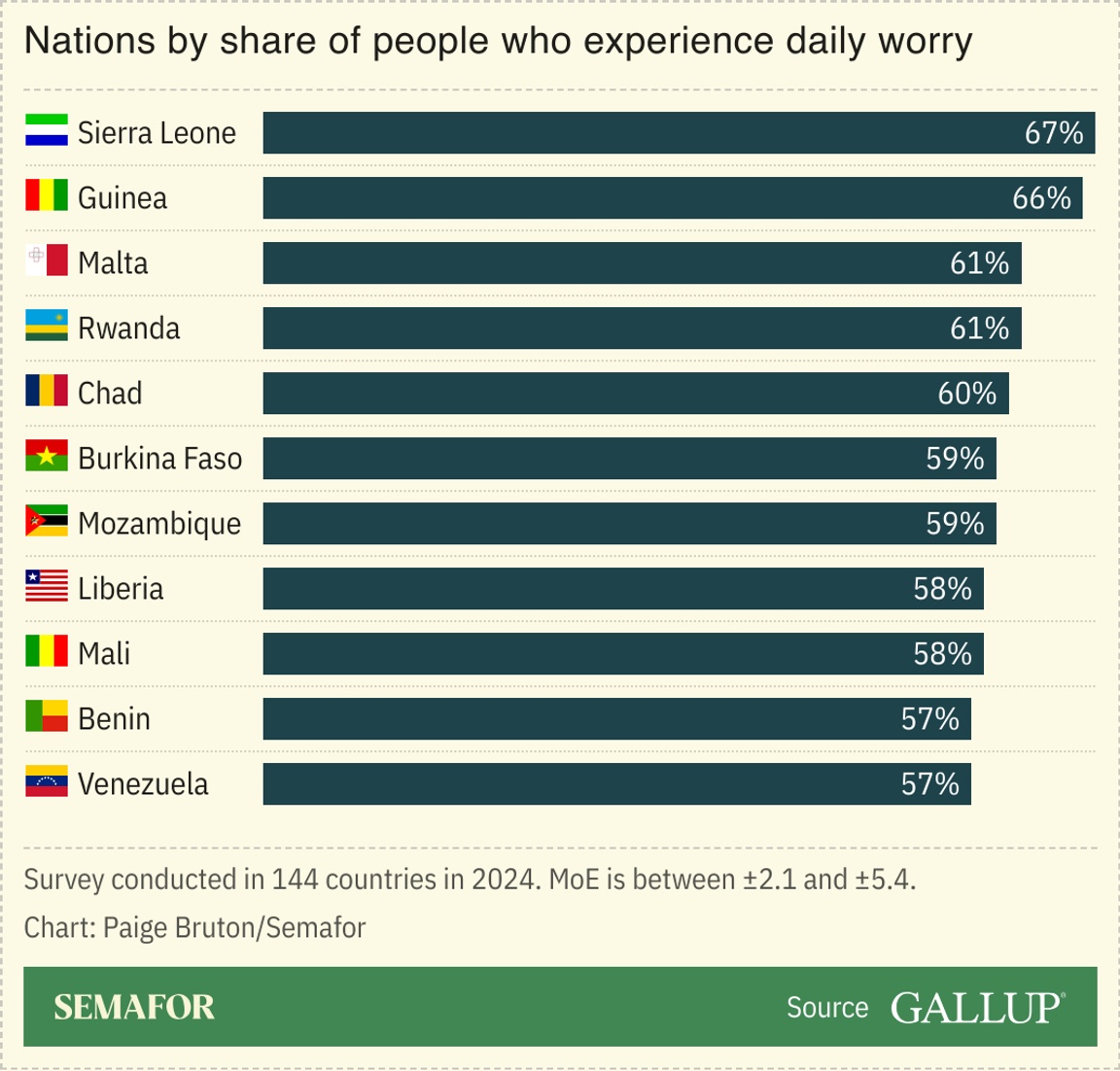 Sub-Saharan Africa is the global epicenter of self-reported feelings of anger, worry, sadness, and physical pain, a new Gallup survey showed. The region accounted for nine of the top 11 countries in the world with the largest share of adults reporting feeling worried: The top two were Sierra Leone and Guinea, where at least two in three adults reported feeling worried. Both countries also featured in Gallup’s top 10 countries where more than a third of resident adults felt anger. Anger in Chad, meanwhile, reached a new high in 2024, “potentially reflecting public frustration after a deadly ammunition depot explosion in June and unrest surrounding disputed elections,” Gallup noted. Globally, negative emotional feelings have declined from COVID-19 pandemic highs, according to the survey. However, these feelings have been “more common in countries that experience more violence and conflict,” an association that remains significant even after controlling for GDP, the survey found. — Alexander Onukwue |
|
The power of digital traceability |
  Hereward Holland/File Photo/Reuters Hereward Holland/File Photo/ReutersDigital traceability systems could transform African commodity markets, wrote the founder of a tech startup navigating this space in a column for Semafor. For African economies to fully benefit from the growing demand for the continent’s minerals, global buyers and local producers must both have confidence in how those resources are sourced and traded, argued Anu Adedoyin Adasolum. Sabi, the company she co-founded in 2021, designed a platform called TRACE to connect producers, miners, and buyers to meet global trading standards. Traceability is “how we build trust and capitalize on a rare moment to supply the globe directly and on our terms,” Adasolum said. |
|
|